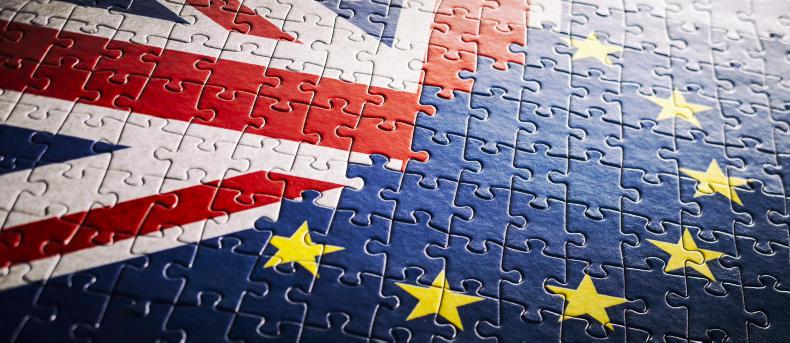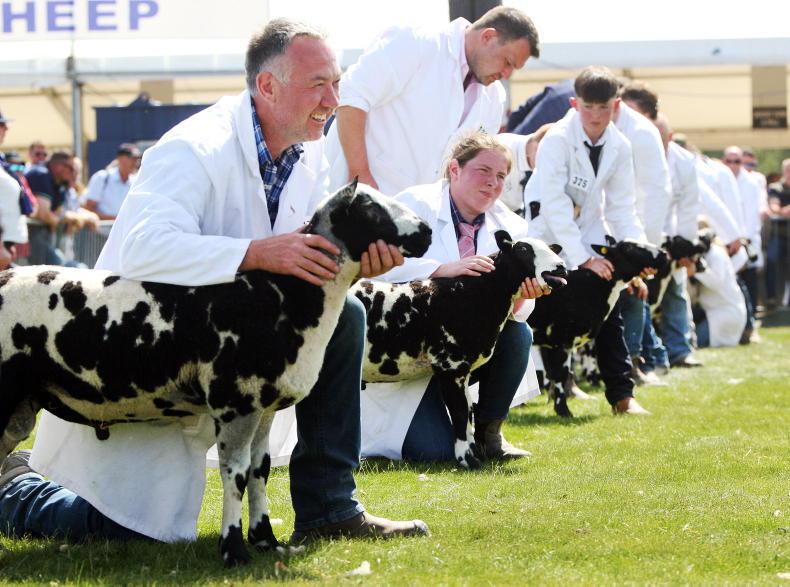As Brexit discussions get underway, the Irish Farmers Journal breakfast briefing at Balmoral served as a stark reminder of the uniquely exposed position the Irish agricultural sector faces.
The Commission is on the diplomatic offensive, negotiating trade deals with as many third countries as possible, for example Japan, China and Canada.
This is in part to offset the trade impacts of Brexit, but also due to lessons learned from the Russian embargo.
Trade with the US
One of the big questions is around trade between the EU and US. While it is a key agricultural exporter, the Commission sees opportunities for the dairy sector in particular.
However, in modern trade agreements agriculture is just one chapter, and countries like China and Russia are putting in place mechanisms to protect their agricultural industries which can have a distorting effect on trade.
The border
Closer to home, we have yet to see how exactly a border between the North of Ireland and the Republic will play out. For the moment we assume that a WTO scenario is the worst one, with the current “invisible” border being the best-case scenario.
The border with Northern Ireland will have to be a unique solution, the Commission does not want to see the hard borders on eastern Europe in the Balkan states replicated, as it has really interrupted trade flow there.
What is crystal clear, however, is that the EU will not accept any lowering of standards. In particular, anything that could damage the animal welfare standards for the entire EU27 trading block will not be accepted.
While the Commission wants to have a good working relationship with the UK, it will not be treated like a member of the EU.
There will be a transitional trade agreement put in place before the final one. However, the UK may enter into a trade deal with other third countries before a final deal between the EU27 and the UK is concluded.
Eight takeaway points from the Irish Farmers Journal Brexit discussion:
1.Negotiators will make efforts to put transitional trade arrangements in place for after the UK leaves the EU and before trade negotiations are concluded.2.The European Commission’s objective of Brexit negotiations is to limit damage to the remaining EU27 as much as possible, and not to give the UK a “bad deal”.3.Other issues remain in Brussels asides from Brexit, such as concluding a trade deal with Japan, negotiations with the Mercosur trade bloc and a possible trade deal with the US.4.Countries across the world are putting more measures in place to support productive agriculture, such as Russia, China, India and Brazil.5.There will be new border arrangements with NI and the Republic of Ireland, but a “soft” border is recognised as a benefit to both the EU and UK.6.The new arrangement for the Irish border will be unique and not an “off-the-shelf” model used in a different region currently.7.Discussion on policy options will continue in Brussels regardless of Brexit. The review of the policy will take place first, and the change to the budget as the UK leaves will be addressed after.8.The EU27 will be the follower to current trade deals that the EU has with third countries, but it is not reasonable for current quotas in some agreements to be copied over, such as the quota for sheepmeat from New Zealand.Report finds CAP highly inefficient, especially to environmental effects
Barnier: a close partnership with the UK is in everybody’s interest
As Brexit discussions get underway, the Irish Farmers Journal breakfast briefing at Balmoral served as a stark reminder of the uniquely exposed position the Irish agricultural sector faces.
The Commission is on the diplomatic offensive, negotiating trade deals with as many third countries as possible, for example Japan, China and Canada.
This is in part to offset the trade impacts of Brexit, but also due to lessons learned from the Russian embargo.
Trade with the US
One of the big questions is around trade between the EU and US. While it is a key agricultural exporter, the Commission sees opportunities for the dairy sector in particular.
However, in modern trade agreements agriculture is just one chapter, and countries like China and Russia are putting in place mechanisms to protect their agricultural industries which can have a distorting effect on trade.
The border
Closer to home, we have yet to see how exactly a border between the North of Ireland and the Republic will play out. For the moment we assume that a WTO scenario is the worst one, with the current “invisible” border being the best-case scenario.
The border with Northern Ireland will have to be a unique solution, the Commission does not want to see the hard borders on eastern Europe in the Balkan states replicated, as it has really interrupted trade flow there.
What is crystal clear, however, is that the EU will not accept any lowering of standards. In particular, anything that could damage the animal welfare standards for the entire EU27 trading block will not be accepted.
While the Commission wants to have a good working relationship with the UK, it will not be treated like a member of the EU.
There will be a transitional trade agreement put in place before the final one. However, the UK may enter into a trade deal with other third countries before a final deal between the EU27 and the UK is concluded.
Eight takeaway points from the Irish Farmers Journal Brexit discussion:
1.Negotiators will make efforts to put transitional trade arrangements in place for after the UK leaves the EU and before trade negotiations are concluded.2.The European Commission’s objective of Brexit negotiations is to limit damage to the remaining EU27 as much as possible, and not to give the UK a “bad deal”.3.Other issues remain in Brussels asides from Brexit, such as concluding a trade deal with Japan, negotiations with the Mercosur trade bloc and a possible trade deal with the US.4.Countries across the world are putting more measures in place to support productive agriculture, such as Russia, China, India and Brazil.5.There will be new border arrangements with NI and the Republic of Ireland, but a “soft” border is recognised as a benefit to both the EU and UK.6.The new arrangement for the Irish border will be unique and not an “off-the-shelf” model used in a different region currently.7.Discussion on policy options will continue in Brussels regardless of Brexit. The review of the policy will take place first, and the change to the budget as the UK leaves will be addressed after.8.The EU27 will be the follower to current trade deals that the EU has with third countries, but it is not reasonable for current quotas in some agreements to be copied over, such as the quota for sheepmeat from New Zealand.Report finds CAP highly inefficient, especially to environmental effects
Barnier: a close partnership with the UK is in everybody’s interest










SHARING OPTIONS